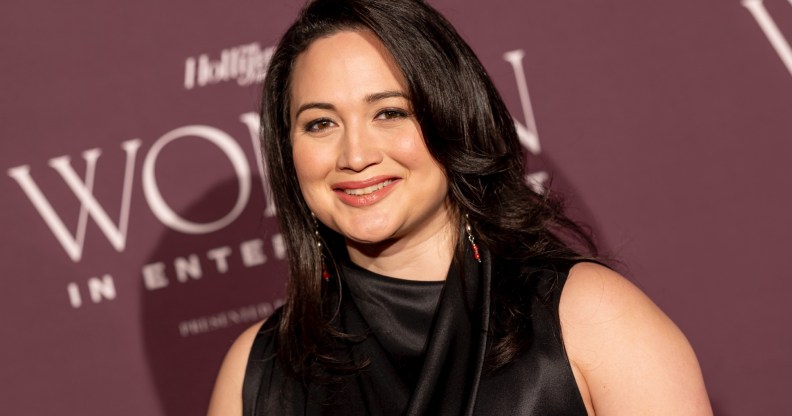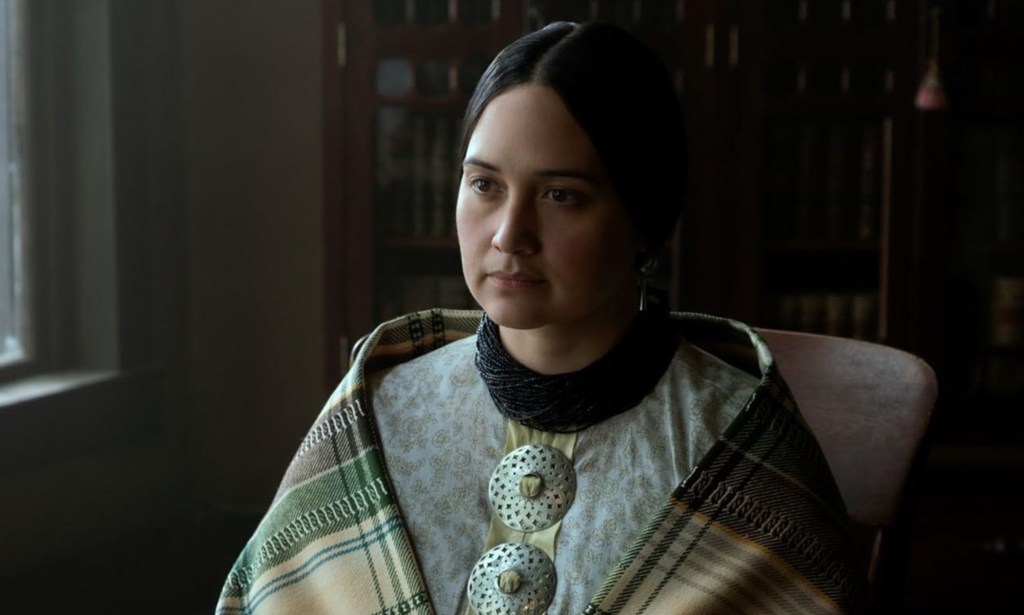Lily Gladstone on ‘decolonising gender’ with she/they pronouns

Lily Gladstone talks decolonising gender and gendered award categories. (Getty)
Killers of the Flower Moon star Lily Gladstone explained her approach to “decolonising gender” was influenced by their upbringing on Montana’s Blackfeet reservation.
The Golden Globe nominated actor appeared opposite Leonardo DiCaprio in the 2023 film Killers of the Flower Moon from acclaimed director Martin Scorsese.
The three-and-a-half hour true crime Western follows the Osage Nation whose land, oil resources and lives were ravaged in the 1920s by the deeply corrupt cattle rancher William Hale (Robert De Niro) and his nephew, Ernest Burkhart (DiCaprio) who married wealthy Osage Native American Mollie Kyle (Gladstone).
The Indigenous-American actor has been praised for her powerful performance by co-stars critics and fans alike.
Now, in an interview with People, the 37-year-old breakout star (who has Blackfeet and Nez Perce heritage) has spoken up about how their childhood experiences shaped her view of gender for the better.

First, she pointed to harmful gender stereotypes such as assigning long hair to girls and short hair to boys. “I remember being nine years old and just being a little disheartened, seeing how often a lot of my boy cousins were misgendered because they wore their hair long,” she began.
After seeing Native American boys leaving home and having their long hair shamed, Gladstone started believing “everybody should just be they”.
“In most Native languages, most Indigenous languages, Blackfeet included, there are no gendered pronouns. There is no he/she, there’s only they,” they continued. “Our gender is implied in our name. But even that’s not binary.”
The actor recounted her grandfather’s name translated to “Iron Woman” while several women historically have been given “men’s names”.
“So, yeah, my pronoun use is partly a way of decolonizing gender for myself,” they concluded. “[I’m] embracing when I’m in a group of ladies, I know that I’m a little bit different. When I’m in a group of men, I don’t feel like a man.”
This has also impacted Gladstone’s approach to gendered award categories. The star is tipped to secure an Academy Award nomination for Best Actress in the 2024 ceremony.
“I do feel that historically having gendered categories has helped from keeping women actors from a lot of erasure because I think historically people just tend to honour male performances more,” she said, acknowledging all the women who proudly call themselves an “actress”.
However, she added: “Maybe it’s just an overly semantic thing where I’m like, if there’s not a ‘director-ess,’ then there shouldn’t be actresses. There’s no ‘producer-ess,’ there’s no ‘cinematographer-ess.’”
Gladstone joins actors such as Emma Corrin, Jamie Lee Curtis and Bella Ramsey who have all addressed the importance of gender-inclusive award categories.







